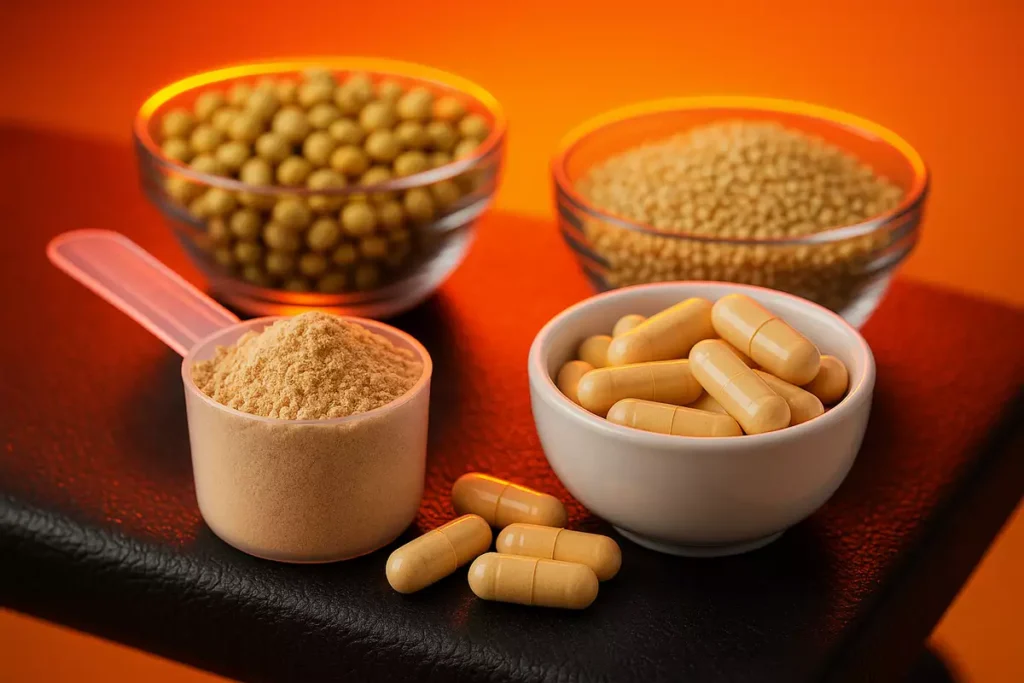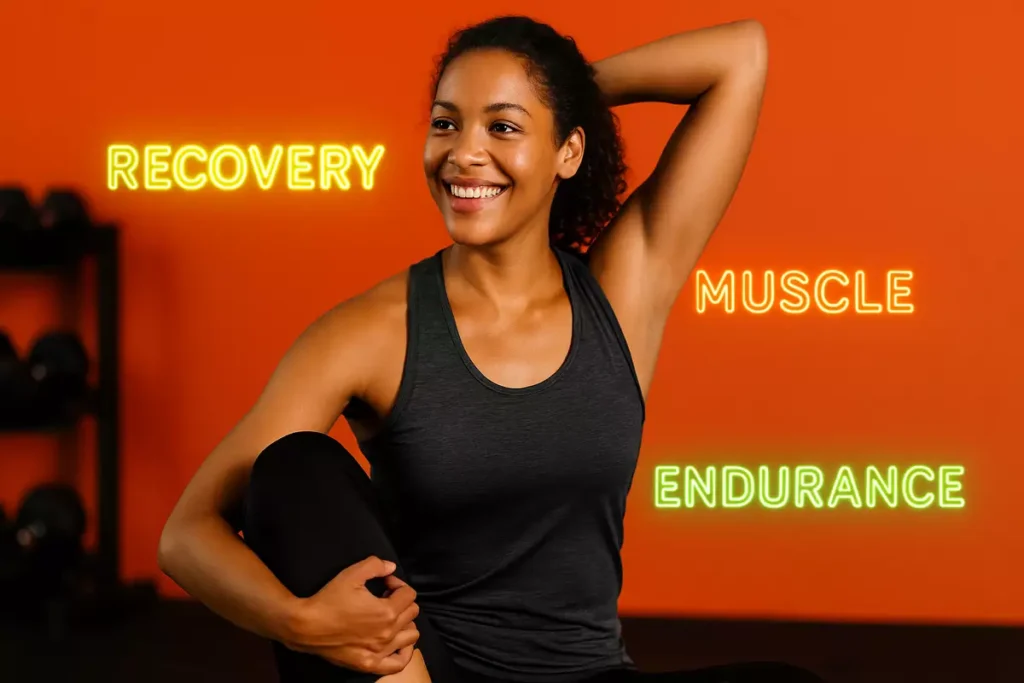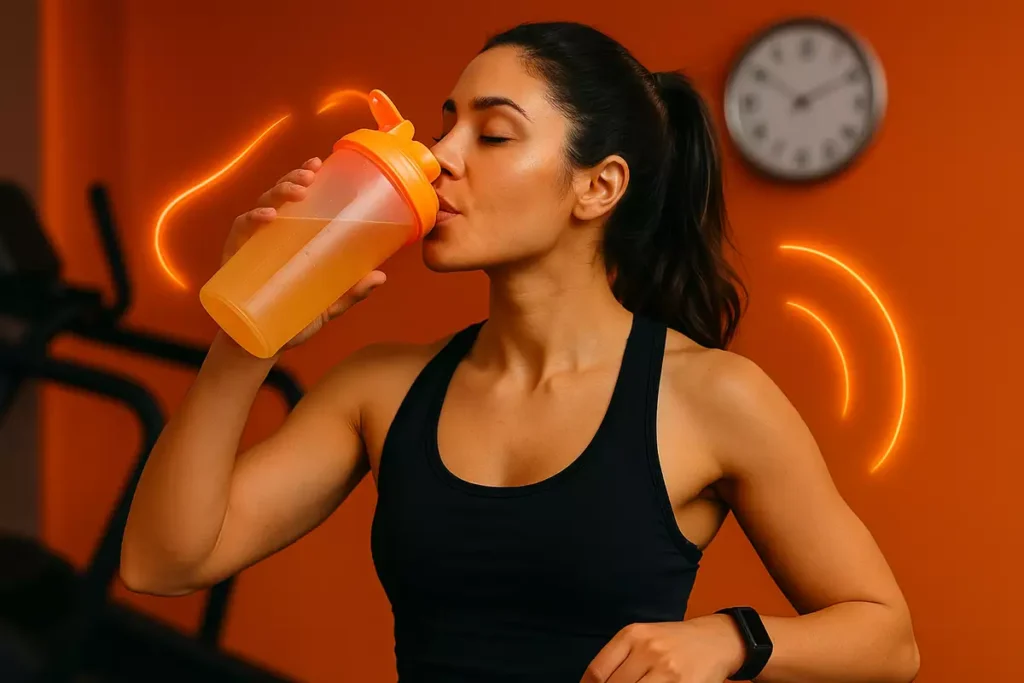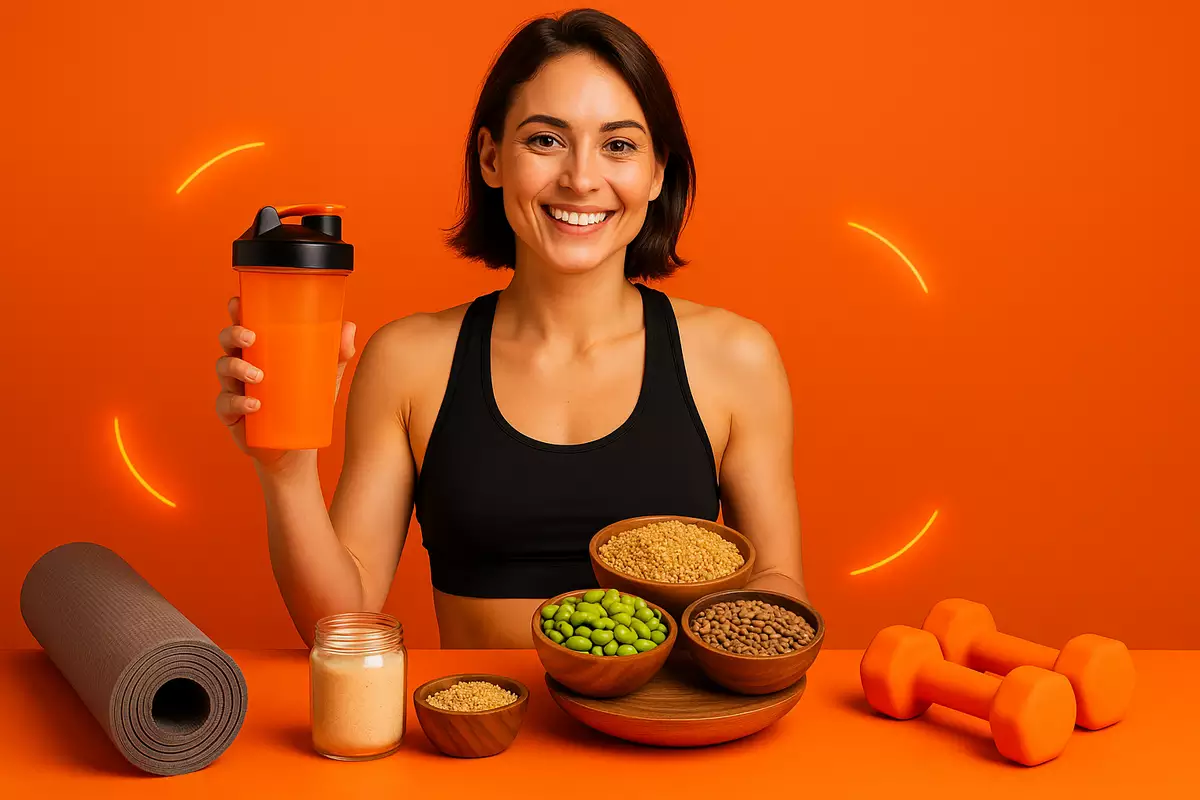Vegan athletes often ask: Are BCAAs worth it? The short answer is yes.
These amino acids boost recovery, protect muscle, and fuel performance when plant proteins fall short.
From my own training and coaching vegan clients, I’ve seen BCAAs make a noticeable difference in soreness, energy, and strength gains.
If you want to maximize recovery and train harder on a vegan diet, BCAAs can be a game-changer.
Table of contents
Why BCAAs Matter for Vegan Athletes
If you’re a vegan athlete, BCAAs (branched-chain amino acids) can make a big difference in your performance and recovery.
They help you build muscle, reduce soreness, and keep your energy steady during tough workouts.
In my own training, I’ve noticed less soreness and quicker recovery when I use BCAAs—especially on heavy leg days. If you’re wondering whether they’re worth it, check out this deep dive: Do BCAAs Really Work or Waste?
What Are BCAAs and Why Are They Important?

BCAAs are three essential amino acids: leucine, isoleucine, and valine.
Your body can’t produce them, so you need to get them from food or supplements. Leucine, in particular, is the key trigger for muscle protein synthesis—the process that helps your muscles grow and repair after training.
For a more detailed comparison, see how they stack up against another popular supplement in BCAA vs Creatine: Strength & Size.
Unique Challenges for Vegan Athletes
As a coach, I’ve seen many vegan athletes struggle with protein intake.
While plant-based diets can be very healthy, they sometimes lack enough leucine-rich protein sources. That’s where BCAAs come in—they can help fill the gap and support recovery.
I remember working with Lucas, a 27-year-old Brazilian runner. He trained hard but often felt drained and sore. Once we added a vegan-fermented BCAA supplement, his recovery time improved, and he could handle his weekly runs and gym sessions without hitting a wall.
Key Benefits of BCAAs for Vegan Athletes

Improved Muscle Protein Synthesis
BCAAs, especially leucine, directly stimulate muscle-building pathways.
For vegan athletes who don’t always hit the leucine threshold through food, supplementation ensures consistent muscle repair and growth.
Faster Recovery and Reduced Soreness
In my own training, BCAAs have helped me bounce back faster from high-volume workouts.
I used to need three days to recover from leg sessions, but with BCAAs, I was ready to train legs again in two.
My client Sarah, a vegan bodybuilder from Canada, also swears by post-workout BCAAs for cutting down soreness. For a timeline of what results to expect, check out BCAA Results: How Long They Take to Work.
Support During Calorie Deficit
When you’re cutting calories, your body is at higher risk of breaking down muscle.
BCAAs help protect lean mass while still allowing fat loss. I’ve used them personally during cutting phases and noticed less muscle flatness and better energy.
Enhanced Endurance Performance
BCAAs may reduce fatigue during long sessions.
Ravi, an Indian CrossFit athlete I worked with, noticed he could push through his WODs with less burnout when sipping BCAAs during training.
Hydration plays a role too—see how BCAAs support it in BCAAs and Hydration in Long Workouts.
Best BCAA Sources for Vegans
You can get BCAAs naturally from foods like soy, beans, lentils, and quinoa.
But hitting the right balance every day can be tricky. Vegan BCAA supplements—usually made from fermented corn or other plant sources—are a practical solution.
Personally, I encourage my clients to combine both: whole foods for long-term nutrition, supplements for convenience and precision.
If you’re unsure where to start, check this guide: Best BCAA Supplements for Beginners.
How and When to Take BCAAs

From my experience, timing matters.
- Pre-workout: Great for energy and muscle protection.
- Intra-workout: My personal favorite, especially during long or fasted sessions.
- Post-workout: Excellent for reducing soreness, as Sarah experienced.
Most research supports 5–10 grams around training, but consistency is more important than obsessing over the exact minute.
Some of my clients even split doses through the day. That can work well, as explained here: BCAA Multiple Times a Day Guide.
If you’re sensitive to stimulants, don’t worry—you can choose caffeine-free options: BCAA Without Caffeine Guide.
Possible Drawbacks & Considerations
BCAAs aren’t perfect. They shouldn’t replace complete proteins from whole foods.
Some people, including myself, have experienced digestive issues with certain artificially sweetened brands.
And if your diet is already rich in complete plant proteins, you may notice less impact.
Trainer’s Final Take
From my years of coaching and training, I wouldn’t call BCAAs “essential,” but they are incredibly useful for vegan athletes.
If you’re struggling with soreness, recovery, or hitting protein targets, they’re worth considering.
In real life, most vegan athletes I’ve worked with found that BCAAs gave them a performance edge, especially during intense training or calorie-cutting phases.
If you want to maximize your recovery, protect your muscle, and train harder with confidence—BCAAs can be a powerful ally on your vegan fitness journey.



Leave a Reply